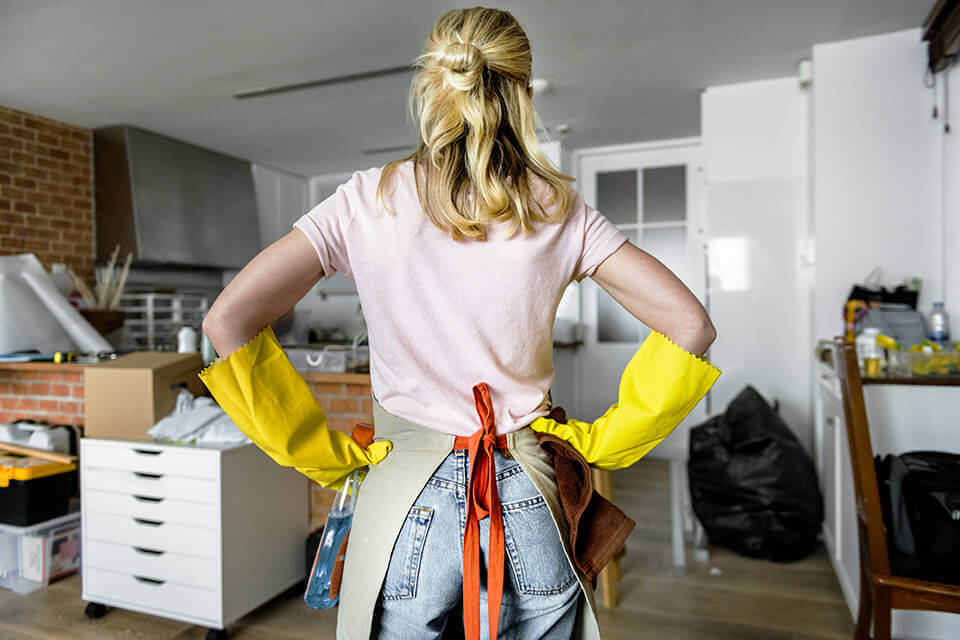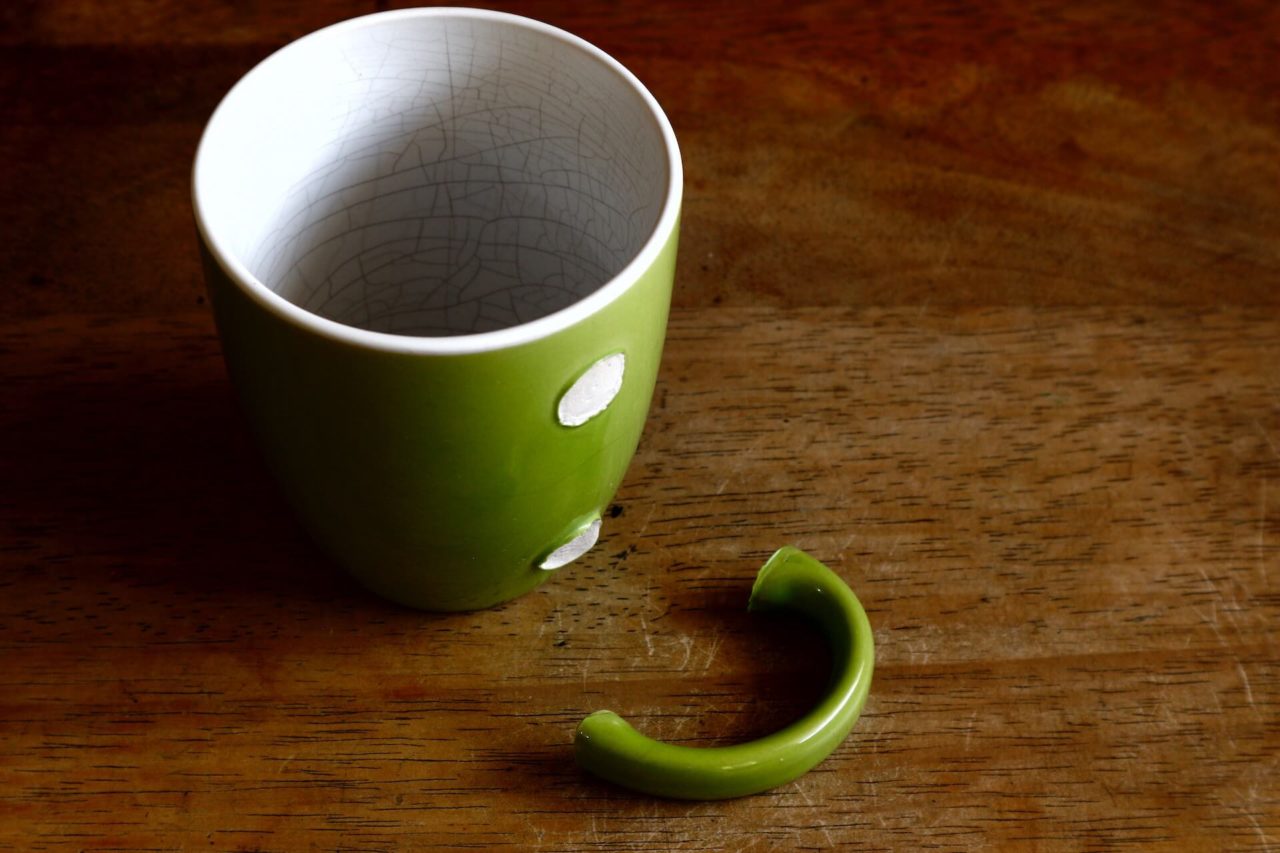
Even if minimalism is not your preferred way of life, learning what to get rid of when moving and removing those belongings from your packing list is necessary before every move. Did you know that more than 50% of Americans are overwhelmed with household clutter? Over the years, people usually accumulate a lot of unnecessary objects, and there is no better excuse to purge through them than a move. We can show you how it’s done.
How Can You Benefit From Discarding Old Items?
Purging through your belongings in order to decide what not to pack can help you move efficiently. It may seem like a paradox, with all the extra time needed to declutter. However, all you have to do is think about how much time (and work) is required to protect and pack those objects carefully and then unpack them. But that is not all!
Decluttering will also help with saving money on relocation costs. How? It is pretty simple – one of the factors in determining the cost of the move is the weight of the inventory. That means that the fewer goods you bring, the less you’ll have to pay in the end. And, of course, do not forget that with fewer belongings, you’ll also use a smaller amount of packing materials.
Decluttering is not only beneficial but necessary if you’re relocating to a smaller home and need to downsize. If the plan is to move all of the belongings from a house to an apartment, it is bound to feel crowded and constricting. Did you know that cluttered spaces can make you feel more stressed? That is most certainly not a goal of the long-distance relocation. So, to avoid future clutter and chaos and preserve your mental health, ensure to learn how to decide what to get rid of when moving.
 Some studies show that discarding unnecessary objects can reduce the housework by up to 40%
Some studies show that discarding unnecessary objects can reduce the housework by up to 40%
How Do I Declutter My House for Moving – the Room-by-Room System
We have already established that making a list of objects you won’t bring is necessary, but how to do so? So the pre-relocation days are used in the most efficient way, decluttering and packing should be done simultaneously – going through all of your belongings once before the move is more than enough. So when getting organized to move and figuring out how long you’ll need to prepare all your belongings, count on some more time in the name of decluttering.
Since boxing up should start from the least-used areas, the same rule goes for decluttering. Start with storage rooms, such as the garage or attic, and progress towards the most used ones such as the bathroom or kitchen. According to the survey conducted by the National Association of Professional Organizers, half of all examinees claim that the garage is the most disorganized area of their home. Moreover, soon you’ll discover that you don’t need, use, or even want many of the belongings stored there. Still, do not get your hopes up thinking that there isn’t much to dispose of in other rooms. Soon enough, you’ll see how much of a hoarder you are.
Make Room for Objects Long-Distance Movers Won’t Move on the Decluttering List
What items are not worth moving is not the only question you should ask when decluttering. Keep in mind that there will also be some goods you will want to bring but won’t be able to. Do you plan on getting cross-country moving services? If so, remember that some items neither East Coast movers nor West Coast movers will move, such as:
- Flammables (fireworks, matches, oils, and so on),
- Corrosive materials (like batteries),
- Toxic materials,
- Perishable food,
- Living things.
Flammables, corrosive, and toxic materials pose safety hazards and, therefore, are strictly forbidden from the back of the relocation truck. Perishable food, on the other hand, can cause damage to your belongings. It is self-explanatory why animals can’t be transported in the back of trucks, but remember that most companies won’t transport plants, either.
Naturally, you should think of ways to discard these belongings before the move. Remember that there are special facilities that handle dangerous waste. Paint and even nail polish and nail polish removers are also considered hazardous objects, so ensure to give them away to someone who finds them useful. And if you plan on keeping the plants on your household inventory list, find a way to relocate them without the help of the long-distance moving company.
Questions That Will Help You Create a List of Things to Get Rid of When Moving
We all have some belongings we’d rather not part with because of all the emotions and memories they evoke. Simultaneously, there is practical stuff – relocation essentials – you cannot live without after the move. But what about the rest of your belongings? Take a look at the following questions and try to answer them for each non-sentimental and non-essential item. After you go through all of the household goods like this, the list will be done.
How Often Do You Use It?
Try to remember when you last used the item in question. The general rule is that a thing you haven’t used in more than a year is usually not worth relocating (except, of course, belongings that hold sentimental value). Did you know that an average person uses only 20% of their clothes? Do you have some T-shirts, jeans, and other pieces you haven’t worn in a while? If you do not like them anymore, they don’t fit or are just old and outdated, try thinking about them as something to give away. The same rule should be applied when you begin to pack shoes.
Is It a Good Fit for the New House?
This question is crucial when relocating large items. Some belongings simply can’t get through the front door or will look bad considering the shape and size of the rooms. Huge dressers and other massive furniture will not only be tricky to get into another house but also to protect and transport. If you’re not sure about some of the pieces, it’s a better option to get storage services until you see the new home’s layout and decide if they will fit.
Does It Work or Is It Damaged Beyond Repair?
Those storage spaces we’re talking about tend to have at least one appliance that is patiently waiting to be fixed, but somehow you never find the time to do it. Newsflash – nothing will change in the future home, so there is no reason to move them in the first place. The same goes when it comes to the electronics you want to pack or any other non-functioning device and gadget.
Chipped dishes, alongside worn clothes, linens, and towels, also should not find their place on your boxing-up list. Replacing them should have been done long ago. Do not insist on keeping them if you already have replacements. If not, wait until after you move to a new city to replace them, so you can avoid adding more weight to the cargo.
 When an object doesn't work anymore, it should be replaced
When an object doesn't work anymore, it should be replaced
Can It Be Digitized?
Do you have some old documents, CDs, or VHS tapes hidden away on a shelf in the attic? If so, embrace the technology the modern era has brought, digitize your collections, and discard hard copies. That way, movies, music albums, games, and even magazines can all be stored safely without taking any part of the physical space.
It should also be something to consider when packing books. Admit to yourself – how many unread books do you have in the current place? If you haven’t read them until now, chances are you won’t be doing it soon. The fact that most of them can be found online and in libraries should push you to part your ways with the hard copies.
Organizing important documents is also one of the things to do before relocation. Do not forget that the essential records should be digitized, also. As for other, less important paperwork (past bills, tax records older than seven years, and the like), remember that they shouldn’t just be thrown away. Shred them or destroy them in any other way – do not take any chances at someone stealing your identity.
Is It a Duplicate?
If you’re relocating with kids, you’ll witness a vast number of toys collected over the years. When you start to pack toys for moving, remember that there is no need to bring all of them. There will be some your child simply doesn’t play with anymore or has grown out of – remember that it is OK to leave them behind. The same rules apply to all the belongings you have a bunch of – dishes, beddings, towels, and so on.
What Is the Expiration Date?
One of the things people forget to do when relocating is check if the products have already expired (or will soon). That leads them to bring the goods they won’t be able to use in a new home. So, before getting packing services or doing it yourself, check the declaration on:
- Food and spices,
- Makeup and toiletries,
- Bathroom products,
- Cleaning supplies.
 The makeup collection should be purged every once and a while, and the move is a perfect excuse to do just that
The makeup collection should be purged every once and a while, and the move is a perfect excuse to do just that
Do not Let Guilt Decide What to Get Rid of When Moving and What to Keep
There is no better reason than relocation to a new home to purge through all the stuff you hate but still keep out of guilt or obligation. Famous organizer Marie Condo says that you should only surround yourself with items that spark joy. So out with the hideous gifts – give away all those vases, figurines, and amateur artwork you have gathered over the years! Don’t let something that is a thorn in your side take any more of your time and effort.
Guilt can also be connected to some sentimental items. Do you have a million of your kid’s drawings that you have difficulties letting go of? Or tons of albums with old photos? Scan them all and keep them in a digital format, but decide to keep only those physical copies you value the most.
 Every drawing your child creates is a masterpiece, but those masterpieces can pile up
Every drawing your child creates is a masterpiece, but those masterpieces can pile up
How Do You Get Rid of Stuff When You Move Out?
After you have decided which belongings you’ll be keeping, find out how to discard the rest. Those that are no longer usable should be thrown away, without question – worn and torn clothes, damaged goods, and broken devices won’t be of use to anyone. However, before simply placing them in garbage bags, explore the possibilities of recycling and find a new purpose for the unusable objects.
Donate, Gift, or Sell Old Things That Can Still Be Useful in Another Home
However, not all goods you’re planning to discard are made for throwing/recycling. Let’s think, for example, how to get rid of furniture when moving if it’s still in good condition. You can opt for selling or donating (or gifting to a friend or family member). Selling is usually reserved for objects that are worth all of the fuss of the selling process – organizing a garage/yard sale, finding buyers online, and so on. As for donating, numerous non-profitable organizations will ensure all of your unneeded or unwanted furniture ends up in the hands of those who need them the most. Habitat for Humanity is one of them, but you can also contact Goodwill, Salvation Army, The Arc, and the like, and donate to their organizations.
The good thing is that you can donate whatever you deem fit under the condition that it is still usable. Moreover, your donations can even play a part in a tax deduction if you provide the receipt. So when thinking about how to get rid of stuff before moving, ensure you put donations on your relocation to-do list. And if you want to find out more about how to decide whether to donate or sell, take a closer look at the video below:

Let Cross-Country Movers Help You Pack and Transport the Goods You Decided to Keep
Now that you have successfully discarded unwanted belongings, pay attention to those you’re planning to keep. The safest and most efficient way of doing so is to get long-distance moving services. Professional long-distance movers with years of training and experience in relocation-related tasks are there to help your move go as stress-free as possible. That means that they will put all of their knowledge and effort into ensuring that nothing bad happens to your belongings. After all, when you decide to keep something, it is only natural to ensure it stays protected and undamaged throughout the whole process. So, don’t hesitate – choose a relocation company and book their services now.









